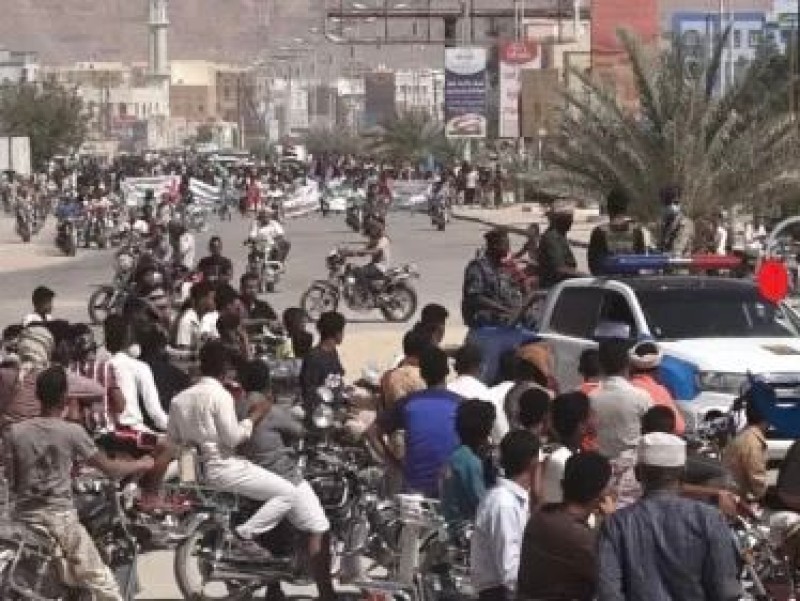Decaying Yemeni oil tanker sparks fears of explosion, spilling in Red Sea


An oil tanker, moored off the western coast of Yemen, loaded with more than 1 million barrels of crude oil, continues to spark fears of explosion or spilling into the Red Sea.
An official source at the state-owned Safer Company in Yemen told Xinhua that the risks of a large oil spilling or explosion of the rusting oil-storage vessel off the port city of Hodeidah are rapidly increasing due to a lack of maintenance.
"The floating oil vessel usually revolves around a fixed pivot at the seabed, but several weeks ago it started to move unusually," he said.
The source emphasized that solutions are narrowing every day and that it is crucial to empty the tanker now, as maintenance measures are no longer beneficial.
The vessel, which has been docked in the Red Sea off the coast of Hodeidah since 1988, was used by the Safer oil company as a floating oil storage tank to store and export oil from inland oil fields around Ma'rib.
The oil tanker is currently under the control of the Houthi rebels, and its maintenance has stopped since 2015, which caused corrosion of the vessel's main body.
Yemen's pro-government Foreign Affairs Minister Mohammed al-Hadhrami said that the issue of the oil tanker can no longer afford to wait or delay.
During a meeting held on Thursday with foreign ambassadors and diplomatic missions accredited to Yemen, Al-Hadhrami said, "The Houthi militias continue to obstruct addressing the situation of Safer oil vessel."
The Yemeni minister also urged the international community to "pressure the Houthi militia to end the obstruction on solving the Safer vessel issue as it became more dangerous."
The United Nations has repeatedly demanded the Houthis to allow an independent team to have immediate access to the vessel.
According to the United Nations, the Yemeni government and the Houthi authorities had officially requested, in March 2018, the UN's assistance regarding Safer's floating storage tank, but the team was unable to access the vessel due to the lack of necessary approvals during the past two years.
Meanwhile, the Houthis frequently blame the Saudi-led Arab coalition for preventing them from emptying or carrying out maintenance operations of the vessel.
Last week, Najeeb Al-Awj, the oil minister of the internationally recognized government of Yemen, accused the Houthis of blocking a UN technical team to access the vessel.
"The vessel's dilapidated condition could expose it to sinking, and that would be the biggest and most dangerous environmental disaster ever," said the minister.
As fears of a possible rupture or explosion of the Safer vessel are spiking, the Yemeni government formed an emergency committee to respond to the potential risks.
A Yemeni specialist warned of the consequences that any oil spill could have an immense impact on the marine environment and the biodiversity in the Red Sea.
Fatima Daghm Shamsan, director-general of the Marine Science and Aquatic Research Authority in Hodeidah, told Xinhua that the Red Sea is renowned for its biodiversity and its distinctive marine environments such as mangroves, coral reefs, and swamps.
She warned that any possible oil leakage from the Safer vessel would pose major threats to the marine environment in the Red Sea and the adjacent seas.
Yemen has been witnessing a bloody conflict for six years between government forces backed by Saudi Arabia and the Houthis allied with Iran, and this conflict has cast a shadow over all aspects of life in the impoverished Arab country.

Sana'a -- Houthi militias have released prominent academic Dr. Hamoud al-‘Oudi and engineer Abdulrahman al-‘Alfi after nearly three wee…

Seiyun -- Local reports from Yemen’s Hadramawt governorate indicate that military checkpoints belonging to the First Military Region, under t…

Sana'a -- Local sources in Sana’a reported that Houthi militias have surrounded the residence of Sadeq Amin Abu Rass, the chairman of the Gen…